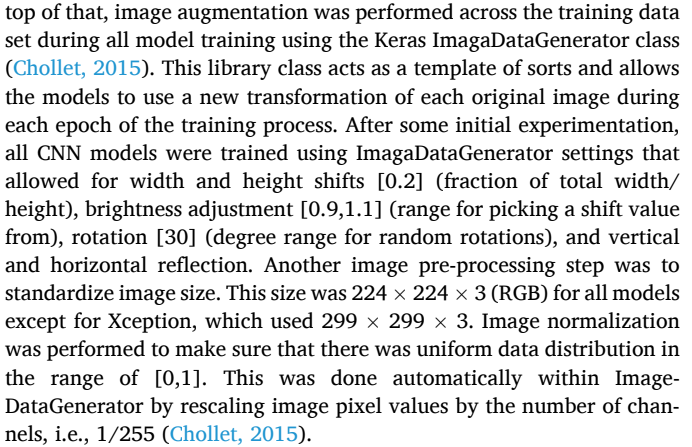Thank you. I added ReLU to that of Torch, but it’s not changing the result. I think Torchinfo summary for DenseNet201 does not show some of the operations it performed, such as global average pooling and maybe even the final ReLU someone asked a question along this line and no concrete answer was given.
I cross-checked my data transformation layer, but I don’t think it’s responsible for the poor performance. At this point, I don’t know what else to do.
According to the authors, this is the transformation performed on the data:
And this is my replication:
mean = np.array([0.485, 0.456, 0.406])
std = np.array([0.229, 0.224, 0.225])
data_transforms = {
'train': transforms.Compose([
transforms.RandomHorizontalFlip(), # Horizontal reflection
transforms.RandomVerticalFlip(), # Vertical reflection
transforms.RandomRotation(30), # Rotation
transforms.RandomResizedCrop(224), # Rescale images and crop to size
transforms.RandomAffine(degrees=0, translate=(0.2, 0.2)), # Width and height shifts
transforms.ColorJitter(brightness=(0.9, 1.1)), # Brightness adjustment
transforms.ToTensor(), # Convert images to Tensor
transforms.Normalize(mean, std) # Normalize to [0, 1] range
]),
'val': transforms.Compose([
transforms.Resize(size=(224,224)),
transforms.ToTensor(),
transforms.Normalize(mean, std)
]),
'test': transforms.Compose([
transforms.Resize(size=(224,224)),
transforms.ToTensor(),
transforms.Normalize(mean, std)
]),
}
